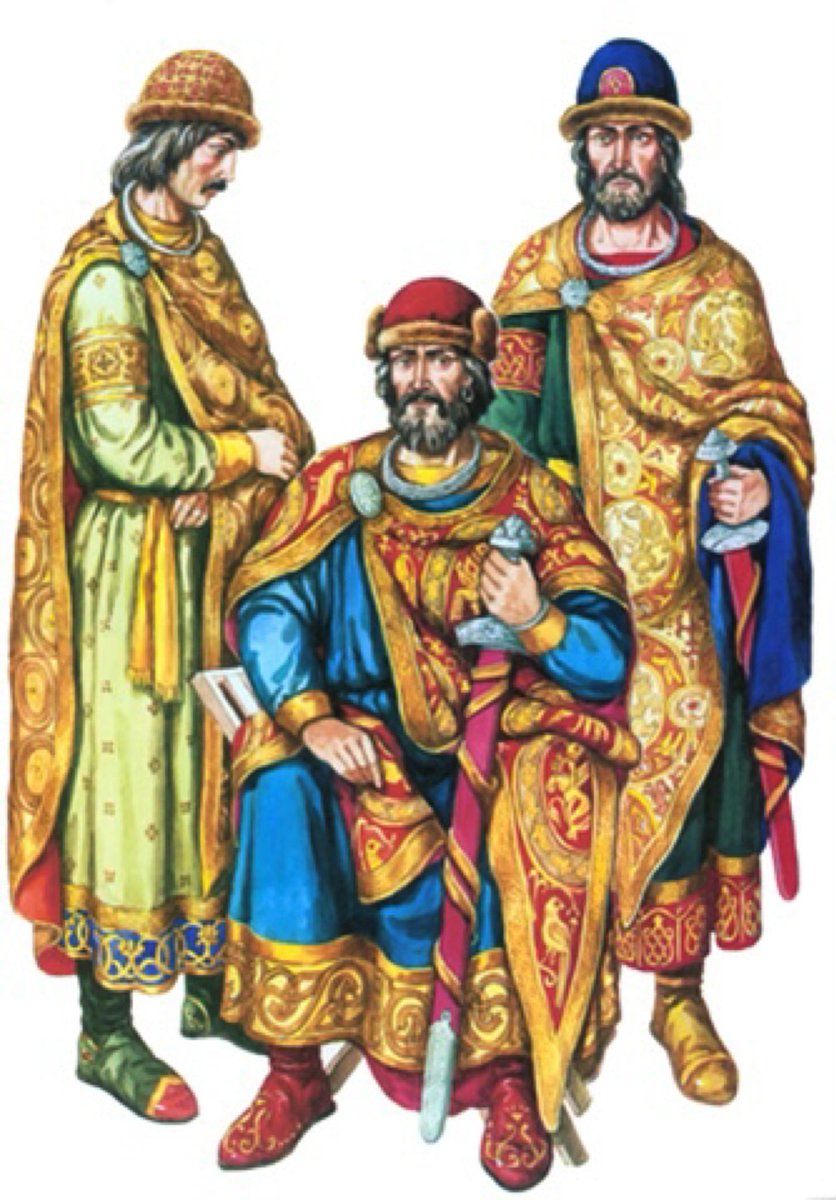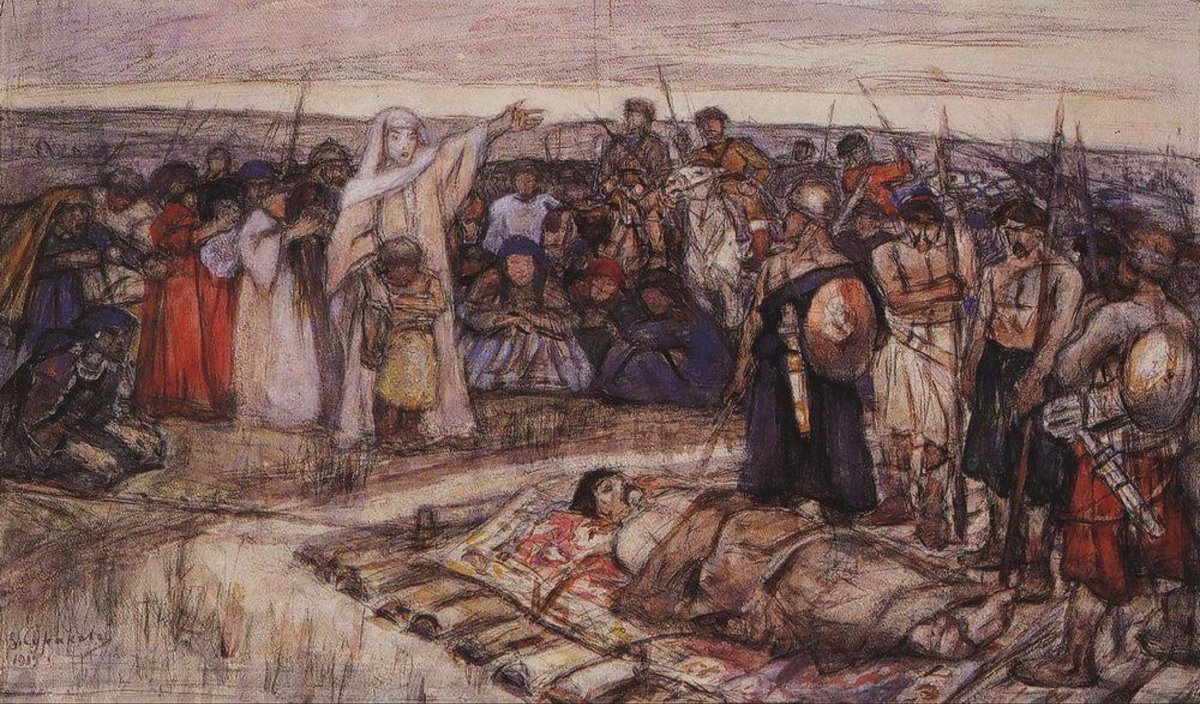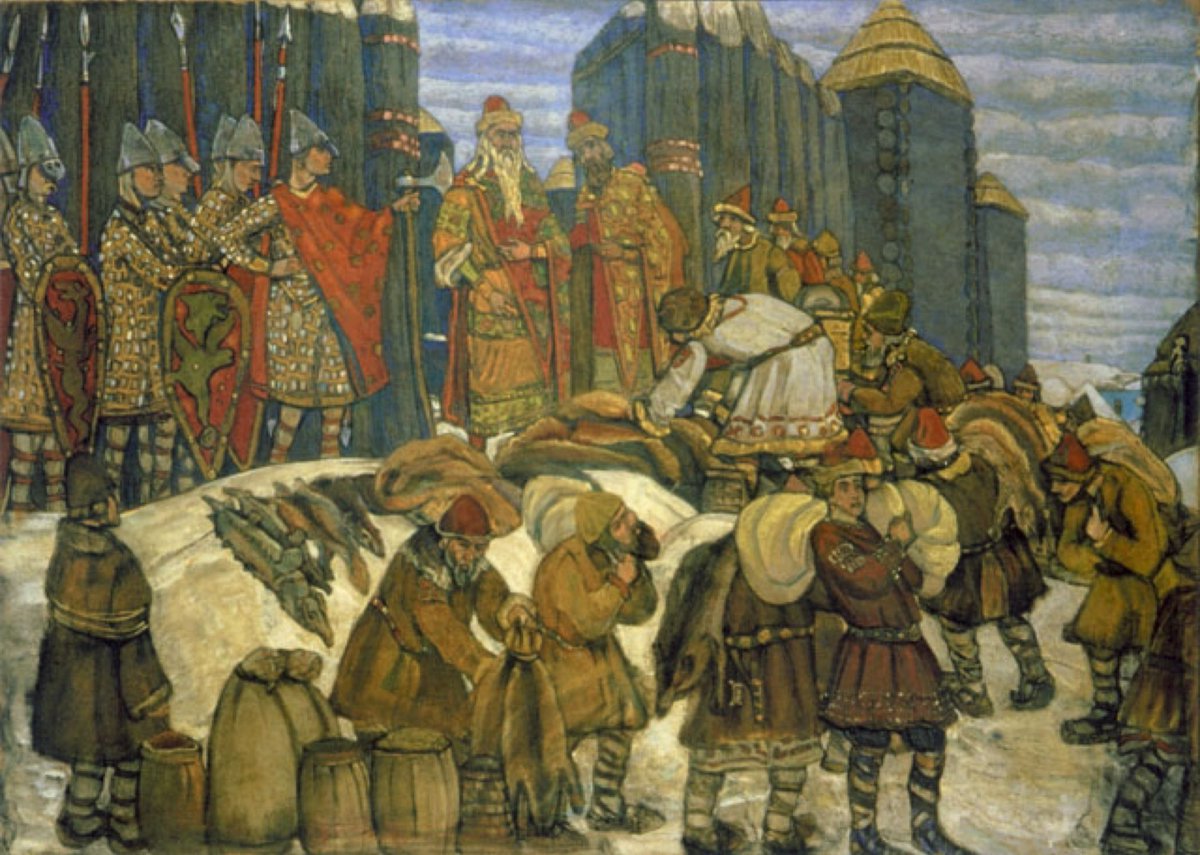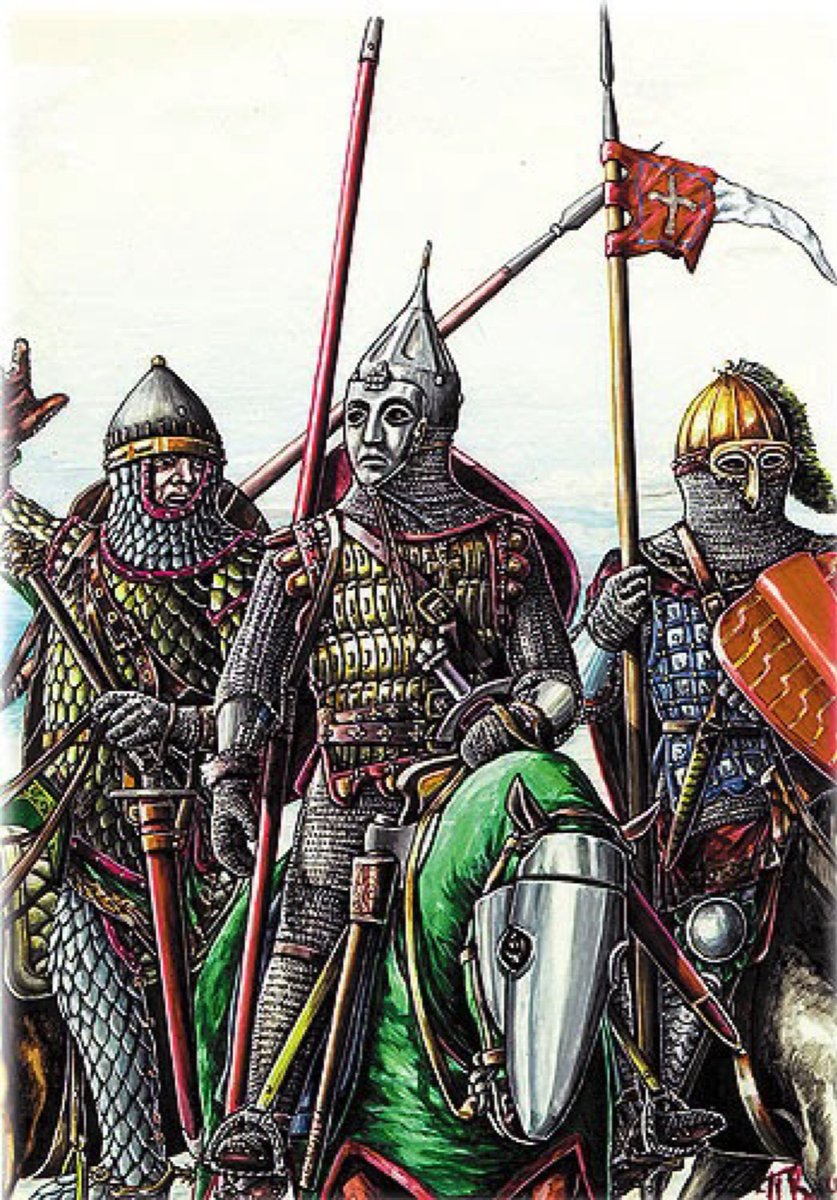After the death of Igor, Olga assumed power on behalf of their son, Sviatoslav. The Drevlians, sensing weakness, sent a message to Kiev to make Olga aware of Igor’s death and proposed Olga marry Prince Mal, their chieftain. The twenty men of the embassy arrived in Kiev by boat. 

The boldness of the Drevlians was met with cunning. Olga assured them that she wished to honor them properly and would have them brought to the palace the next day. She proposed they sit in their boat while Kiev’s residents carried them to her.
The Drevlians, understanding this as a great honor, complied and were carried. When they reached the court the Kievans threw them into a trench they had dug the night before and buried them alive. Olga asked if “the honor [was] to their taste.” 

Olga then sent a message to the Drevlians to bring “their distinguished men to her in Kyiv, so that she might go to their Prince with due honor.” Unaware of their embassy’s fate the Drevlians obliged. The Drevlians sent many of their leaders to Kiev unawares. 

When the Drevlians arrived at Kiev, Olga had her servants prepare them a bath to wash themselves before presenting themselves in front of her. Grateful, the Drevlians crowded into the bathhouse. Olga had the doors barred and burned down the building with them inside. 

Olga then sent another message to the Drevlians to “prepare great quantities of mead in the city where you killed my husband, that I may weep over his grave and hold a funeral feast for him." She arrived with a few companions & wept and feasted. The hesitant Drevlians joined her. 

When the Drevlians were drunk she ordered her men to slaughter them, encouraging them in her rage. The Primary Chronicle claims 5,000 Drevlians were killed here. 

Olga gathered her army at Kiev and marched Iskorosten, the Drevlian capital. She laid siege to the city for over a year. Unable to take the city, Olga sent a message to the residents asking why they resisted and starved while the other Drevlians surrendered and lived in peace. 

The residents of Iskorosten replied that they were willing to pay her tribute but were afraid of her vengeance. Assuring them that the feast satiated her bloodlust, she only asked for 3 pigeons and 3 sparrows from every house in the city. 

Elated at the turn of events, the Drevlians complied. Olga then had her men tie sulphur and cloth to the feet of every bird. That night she ordered them to light the cloth and released the birds. The burning birds flew back into the city and lit every building on fire. 

As the citizens fled their burning city, Olga ordered her men to slaughter them. The rest were taken as slaves and given to her warriors, only a few remained at Iskorosten and agreed to pay tribute to Olga in the future. 

Despite her brutal revenge on the Drevlians, Olga did not wish to rule through violence. Recognizing the grievances of the Slavic tribes, Olga reformed the poliudie (tribute system). Olga appointed her own officials to collect the tribute instead of relying on local chieftains. 

This change gave Olga more control of how tribute was collected and may have helped prevent local chiefs from taking higher tribute to take a large cut for themselves. Historian Valentin Yanin suggests this reform is the origins of Rus Law, later codified in the Russkaya Pravda. 

After this intense episode, Olga busied herself establishing trading posts, hunting grounds, and towns across her lands. These trading posts, pogosti, were used to centralize local trade and administration. This network of pogosti helped foster a Rus identity and administration. 

Olga also established a line of border posts on the fringes of her kingdom. By delineating control and creating a central system of administration the Rus began to coalesce a distinct cultural and ethnic character; mixing Norse and Slavic peoples and traditions. 

Olga dodged constant proposals for remarriage. If Olga remarried she risked Sviatoslav’s future and safety, as well as her control of the state. 

Olga’s centralizing reforms and steady hand provided the Rus state with a period of relative peace, stability, and prosperity. However, within these reforms she separated her personal property from that of the state. 

This would ironically lead to a decentralization of the Rus centuries later as powerful Kniaz (dukes) used this separation to wrest power away from Kiev, a key factor for Rus decline. 

Despite this, Olga’s rule was generally positive for the Rus and her reforms provided the Rus state with the mechanisms necessary for greater exertion. Her son, Sviatoslav, will harness this power and explode onto the world stage in a series of lightning campaigns. 

Another key part of Olga’s reign was her conversion to Christianity and patronage of Eastern Orthodoxy. Saint Olga’s Christian character and support for the church made serious inroads for the Christianization of the Rus, completed by her grandson Vladimir. 

Our next thread will example Saint Olga’s conversion and influence on the development of Rus Christianization and the paradoxical pagan revanchism of her son Sviatoslav and grandson Vladimir in his early reign. 

• • •
Missing some Tweet in this thread? You can try to
force a refresh




















